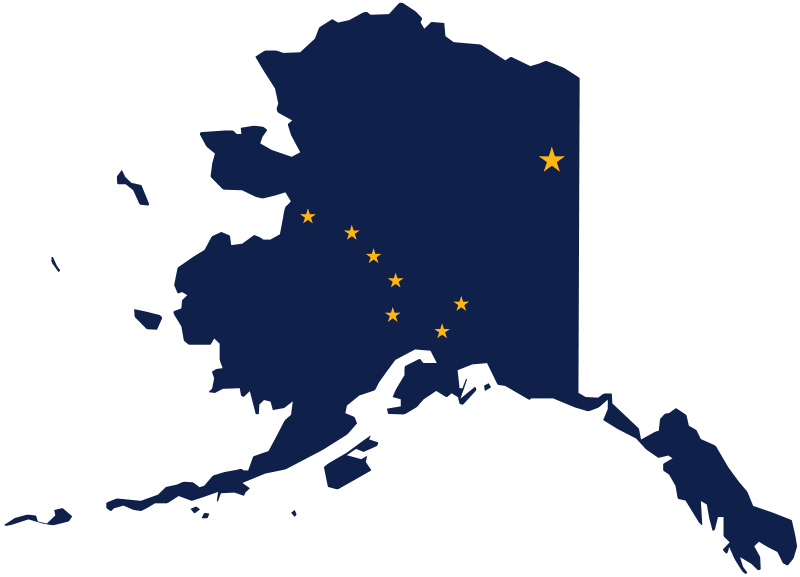Alaska voters may decide on two citizen-initiated measures in 2026—one measure that would enact new campaign finance limits, and another that would repeal top-four ranked choice voting in the state.
Both measures are citizen-initiated ballot measures, meaning they were proposed by citizens rather than the state legislature.
In Alaska, citizens have the power to initiate state statutes through the indirect initiative process. An indirect initiated state statute is a citizen-initiated ballot measure that amends state statute, and there are nine total states that allow citizens to initiate indirect state statutes.
While a direct initiative is placed on the ballot once supporters file the required number of valid signatures, an indirect initiative is first presented to the state legislature after valid signatures are filed. Legislators have a certain number of days, depending on the state, to adopt the initiative into law. Should legislators take no action or reject the initiative, the initiative is put on the ballot for voters to decide.
In Alaska, if the lieutenant governor certifies enough signatures as valid, the initiative is not certified for the ballot until after "a legislative session has convened and adjourned." This gives the Legislature a timeframe to consider the proposal or similar legislation. Otherwise, the initiative is certified to appear on the ballot for the first statewide election 120 days after the legislature's adjournment.
For the campaign finance initiative, Lt. Gov. Nancy Dahlstrom certified the initiative to the state legislature after proponents submitted 29,823 valid signatures, meeting the requirement of 26,705 valid signatures.
The initiative, if approved by voters, would enact campaign contribution limits for campaigns for state and local office. Previously, Alaska voters decided on campaign contribution limits in 2006, when voters approved Measure 1. However, the measure was challenged, and in 2021 the U.S. Court of Appeals for the Ninth Circuit ruled that the measure violated the First Amendment.
Under the proposed measure, individuals would be able to contribute up to $2,000 each election cycle to a candidate, as well as up to $5,000 a year to a political party or other group. A group may contribute $4,000 each election cycle to a candidate and $5,000 a year to another group or political party. When it comes to contributions made to a joint campaign for governor or lieutenant governor in the state, an individual may contribute no more than $4,000 each election cycle, while groups may contribute no more than $8,000 each election cycle.
The initiative would not affect contributions made by super PACs or independent expenditure groups. In 2020, Alaska voters approved Measure 2, which, along with establishing top-four ranked-choice voting, required that contributions of more than $2,000 needed disclosure of the true sources (as defined in law) of the political contributions.
The other citizen-initiated measure that may appear on the 2026 ballot would repeal top-four ranked choice voting that was approved in 2020, but would not affect the campaign contribution requirements approved. Proponents of the initiative filed the initiative in December, and are in the process of gathering signatures.



